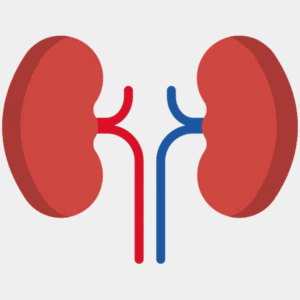Uremia is a serious medical condition that occurs when the kidneys fail to remove waste products from the blood effectively. This leads to a buildup of toxins, which can cause severe health problems if not treated properly. Understanding how to treat uremia effectively can help improve quality of life and prevent complications. In this article, we will discuss the best ways to manage uremia, including medical treatments, lifestyle changes, and preventive measures.

What Is Uremia?
Uremia happens when the kidneys can no longer filter waste from the blood. This results in high levels of urea and other harmful substances circulating in the body. Symptoms of uremia include fatigue, nausea, swelling in the legs, confusion, and shortness of breath. If left untreated, uremia can lead to life-threatening conditions such as heart disease, nerve damage, and even coma.
Medical Treatments for Uremia
The most effective way to treat uremia depends on the underlying cause and severity of kidney damage. Here are the main medical treatments used to manage uremia:
1. Dialysis
Dialysis is a common treatment for uremia when the kidneys are no longer functioning properly. There are two main types of dialysis:
- Hemodialysis: This process uses a machine to filter waste and excess fluids from the blood. Patients usually undergo hemodialysis several times a week at a dialysis center.
- Peritoneal Dialysis: This type of dialysis uses the lining of the abdomen (peritoneum) to filter blood. A special fluid is introduced into the abdomen, which absorbs waste and is then drained out.
Dialysis helps control uremia symptoms and prolongs life, but it is not a cure for kidney failure.
2. Kidney Transplant
For patients with end-stage kidney disease, a kidney transplant may be the best option. A healthy kidney from a donor replaces the damaged kidney, allowing the body to filter blood normally again. While a transplant can provide a long-term solution, finding a compatible donor and managing post-transplant medications are important challenges.
3. Medications
Doctors may prescribe medications to manage uremia symptoms and slow kidney damage. Some common medications include:
- Erythropoietin (EPO): Helps treat anemia by stimulating red blood cell production.
- Phosphate Binders: Reduce high phosphate levels in the blood.
- Blood Pressure Medications: Help control hypertension, which can worsen kidney damage.
- Diuretics: Remove excess fluid from the body to reduce swelling.
Always follow your doctor’s advice when taking medications to avoid complications.
Lifestyle Changes to Manage Uremia
In addition to medical treatments, making certain lifestyle changes can help manage uremia effectively. Here are some important adjustments to consider:
1. Follow a Kidney-Friendly Diet
A proper diet plays a crucial role in managing uremia. Patients should limit foods high in sodium, potassium, and phosphorus, as these can worsen kidney function. Recommended dietary changes include:
- Reducing salt intake to control blood pressure.
- Eating smaller portions of protein to decrease urea buildup.
- Avoiding processed foods and opting for fresh fruits and vegetables (but limiting high-potassium options like bananas and oranges).
- Drinking the right amount of fluids as advised by a doctor.
A dietitian specializing in kidney disease can help create a personalized meal plan.
2. Stay Hydrated (But Not Overhydrated)
Proper hydration helps the kidneys function better, but drinking too much water can be harmful for uremia patients. The right amount of fluid intake depends on the stage of kidney disease and dialysis requirements. Always consult a healthcare provider for guidance.
3. Exercise Regularly
Moderate physical activity can improve overall health, reduce blood pressure, and boost energy levels. Walking, swimming, and light stretching are good options. However, patients should avoid overexertion and consult their doctor before starting any exercise routine.
4. Avoid Smoking and Alcohol
Smoking and excessive alcohol consumption can worsen kidney damage and increase uremia symptoms. Quitting smoking and limiting alcohol intake can significantly improve kidney health.
Preventing Uremia Complications
Uremia can lead to serious complications if not managed properly. Here are some ways to prevent further health problems:
1. Monitor Blood Pressure and Blood Sugar
High blood pressure and diabetes are leading causes of kidney damage. Regularly checking blood pressure and blood sugar levels can help prevent uremia from worsening.
2. Get Regular Check-Ups
Frequent medical check-ups allow doctors to monitor kidney function and adjust treatments as needed. Blood tests, urine tests, and imaging scans help track disease progression.
3. Manage Other Health Conditions
Conditions like heart disease and infections can worsen uremia. Proper treatment of these conditions is essential for overall kidney health.
When to See a Doctor
If you experience symptoms like extreme fatigue, persistent nausea, swelling, or confusion, seek medical attention immediately. Early diagnosis and treatment can prevent uremia from progressing to a dangerous stage.
Conclusion
Treating uremia effectively requires a combination of medical treatments, lifestyle changes, and preventive care. Dialysis and kidney transplants are the main medical solutions, while a kidney-friendly diet, proper hydration, and regular exercise can support overall health. By working closely with healthcare providers, patients can manage uremia symptoms and improve their quality of life. If you or a loved one is at risk of uremia, early intervention is key to preventing severe complications.
By following these guidelines, you can take control of uremia and maintain better kidney health. Always consult a doctor before making any major changes to your treatment plan.
